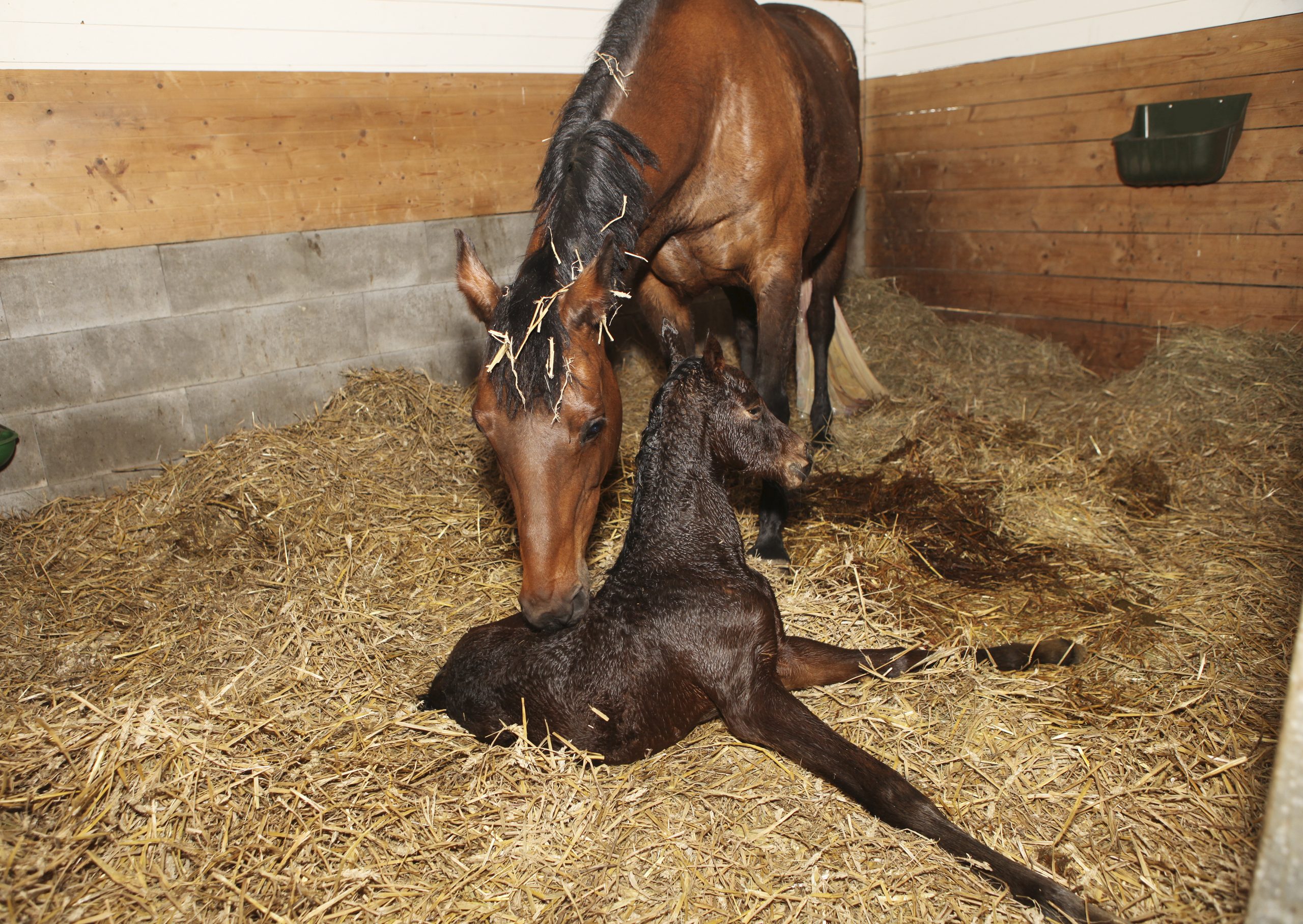Newborn foal health checks are a crucial in the first 24hrs. Neonatal foals can deteriorate quickly if certain issues go undetected such as meconium impaction, septicaemia and failure of passive transfer.
A neonatal foal check will include the following:
1. Thorough physical examination
This examination includes assessment of the foal’s overall demeanour, clinical examination (heart rate and rhythm, respiratory rate and lung sounds, gut sounds and temperature), nursing behaviour, check for congenital abnormalities (including cleft palate) or signs of infection.
2. Check the umbilicus
Within 24hs of birth, the umbilicus should be dry and starting to shrink/shrivel. We examine this for any excess moisture, heat, swelling or enlargement. Depending on symptoms, this can indicate a patent urachus or umbilical infection, both of which require rapid diagnosis for a favourable outcome.
3. Check the foal’s IgG
This is a rapid, foal side blood test that allows us to quickly ascertain if the foal has obtained a sufficient volume and quantity of colostrum from the mare. This is crucial to ensure adequate transfer of immunity from the mare to the foal, to protect it against potentially fatal infections.
4. Ensure meconium has passed
The first faeces, meconium, is sticky dark brown/black balls. Colt foals in particular, sometimes have difficulty passing their meconium, which can lead to impaction and even colic.
5. Check for normal urination
This is to assess hydration and ensure no patent urachus is present
6. Assess conformation
Early intervention for angular limb deformities or tendon contraction/laxity is key for ensuring your foal grows up with nice straight limbs.

If you notice any problems either before or after the 24hr check, it is important to call your vet immediately. Foals, like any neonates can deteriorate very quickly if problems are not noticed and treated effectively. If you notice; reduced sucking, dull demenour, colic symptoms, diarrhoea, a moist or swollen umbilicus when >24hs old, swelling of joints or lameness or any changes in urination or defecation, contact the clinic as soon as possible.

